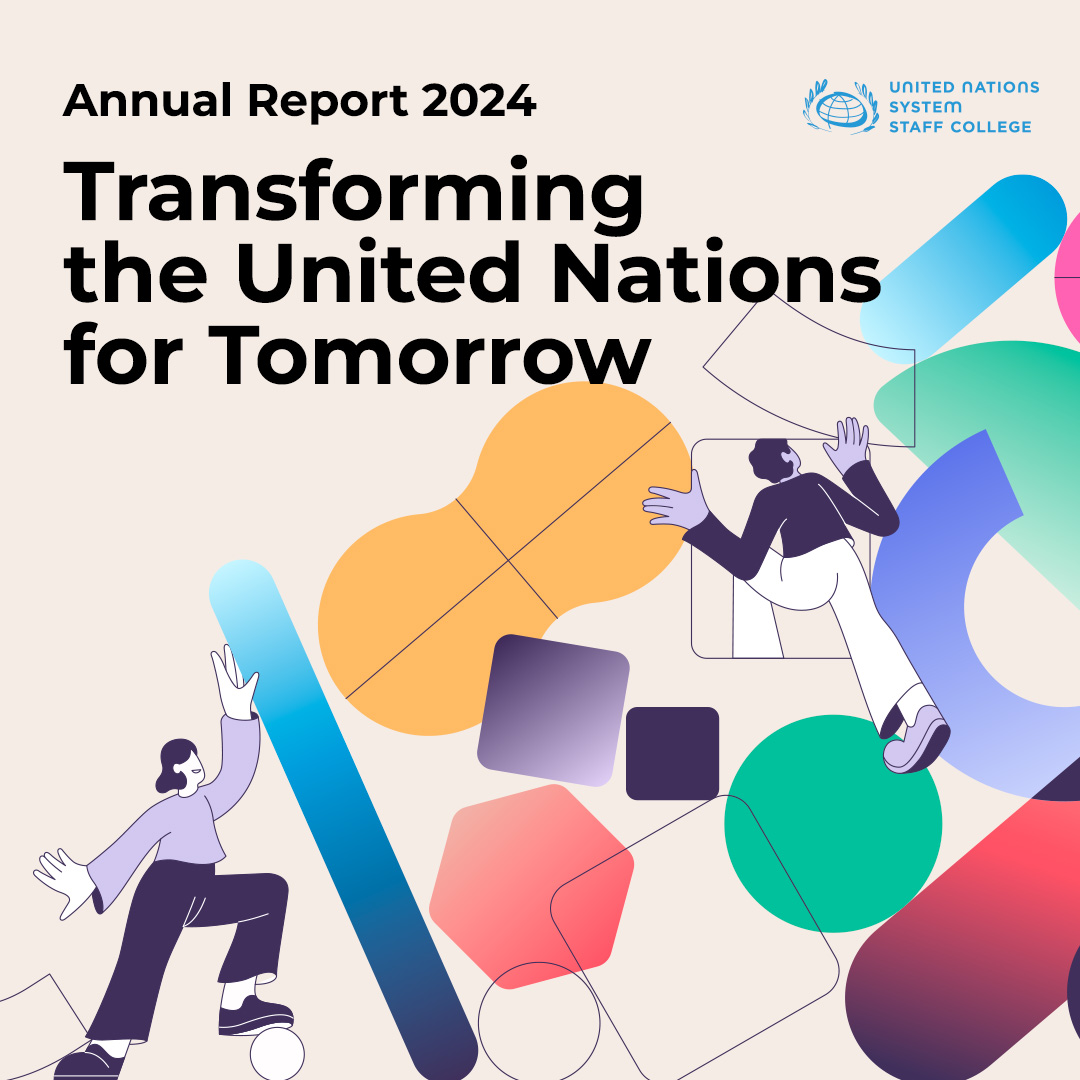


The Executive Master in International Development programme, developed as a partnership between UNSSC and IE University of Spain, aims to tackle global challenges within the multilateral system while promoting sustainable development. Tailored to the needs of UN personnel and aligned with UN priorities, the master’s programme is structured around the Quintet of Change.
One of the courses, "Innovation and Digital Transformation", offers a vital framework for analysing innovation in the development sector. It explores both the opportunities technology presents as well as the potential risks related to privacy, security, and effective governance. Other notable courses offered in the programme include “Data Analytics for Development,” “Strategic Foresight and Risk Analysis,” “Change Making and Policy Impact: Applying the Behavioural Sciences,” and “Innovation and Organizational Change.”
Launched in 2023, the inaugural cohort of the master’s programme, consisting of 15 professionals, graduated in July 2024. The second edition of the master’s programme commenced in September 2024 with 16 participants. Overall, they have come from a diverse range of academic institutions, international organizations, and the private sector. Of the 31 total participants across the two programmes, 15 are from various UN agencies, including the United Nations International Children's Emergency Fund (UNICEF), United Nations Development Programme (UNDP), World Health Organization (WHO), United Nations High Commissioner for Refugees (UNHCR), International Labour Organization (ILO), and Food and Agricultural Organization of the United Nations (FAO).

Executive master graduate
"The Executive Master's programme not only fulfilled my expectations in this learning journey but also led me to a new community that shares the same passion for global issues."
In 2024, UNSSC launched the UN 2.0 Fundamentals E-learning Path free of charge to all personnel of the UN system. The goal of the module on Digital Fundamentals is to help UN personnel navigate the increasingly complex digital landscape by highlighting best practices throughout the system.
The module outlines the shared principles of the Global Digital Compact and explores various technologies. It showcases how different UN entities are utilizing these technologies and introduces the UNDP’s Digital Standards framework to assist personnel in initiating taheir own digital interventions and shifting towards a more digital mindset. Participants are encouraged to reflect on how these principles and frameworks can be strategically applied within their specific contexts. This approach fosters deeper reflection on the impact of the digital transformation and the importance of carefully assessing which and when technologies are needed, underscoring the idea that digital capacity does not always equate to high levels of technological expertise.
To date, participant feedback has highlighted the value of the learning path, with an impressive average rating of 5.01 out of 6 and a 100 per cent recommendation rate.

“I would highly recommend participating in this module to colleagues. It offers valuable insights into tools and strategies that can streamline workflows, enhance communication, and improve data-driven decision-making. It’s particularly beneficial for those looking to adapt to emerging technologies and incorporate digital solutions into their daily work. Whether you're managing teams or working on complex projects, this module provides practical ideas of why it's important to shift to digitalization to increase productivity and achieve project outcomes.”
The rapid adoption of technology is reshaping our world at an unprecedented pace. The integration of technology into all areas of life brings tremendous opportunities to solve some of the world’s most pressing problems but also requires us to mitigate unintended consequences such as growing digital divides, greater energy and resource consumption, and screen addiction.
As we navigate this digital transformation, it's essential to be deliberate about the choices we make, to ensure that we use technology as a force for good, promoting a healthier, safer, and more sustainable environment.
Developed in collaboration with the United Nations Environment Programme (UNEP) and partners such as GIZ of Germany, the European Union, and the UN Technology Envoy, the Digital4Sustainability Learning Path offers four self-paced modules that explore how we can leverage digital transformation for sustainable development, particularly in the context of the triple planetary crisis—climate change, pollution, and biodiversity loss.
In 2024, the programme reached over 5,200 professionals from diverse sectors, bringing the total number of participants since its inception to 21,806. Ninety-seven per cent of participants reported an improved understanding of digital sustainability solutions after participating in the programme.

Formulation assistant, L'Oréal
“One key takeaway is that each of us can play a part in supporting sustainability within our spheres. By educating ourselves, embracing sustainable practices, and taking action, we can raise awareness, mitigate the impacts of the sustainability crisis, and become advocates for positive change. Let's all commit to making a difference!”